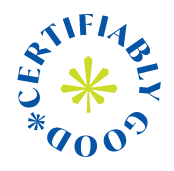Being at the forefront of the Cannabis Industry in California has its challenges for growers, manufacturers, and testing labs. All parties must work in concert to keep up with new and evolving regulations and practices set forth by the California Department of Cannabis Control (DCC) to ensure compliance. The DCC’s mission is to lead innovative policies and effective implementation to advance and facilitate a well-regulated, legal cannabis market that benefits all California residents. Their vision is to create a safe, sustainable, and equitable cannabis market in California that serves as an example for the world.
As an emerging industry, there is bound to be much debate about and changes to policies, regulations, and procedures as the industry grows and evolves. One such rule that went into effect on October 1, 2023, is Business and Professions Code section 26100(f)(2) about the start of a standard cannabinoid testing method, including standardized operating procedures, that will have to be utilized by all licensed testing laboratories in California. Compliance with this rule is required as of January 1, 2024. The updated testing requirements are in effect for cannabis flower and non-infused prerolls. The rule’s intended purpose is the establishment of a standard cannabinoid test method, including standardized operating procedures, that shall be utilized by all licensed testing laboratories in California.
Table of Contents
ToggleOpposition to the New Standard
As with any new rule or regulation proposal in an emerging field with no Federal Regulations as a guide; each stakeholder group wants to protect their own interests. This DCC rule proposal came with some opposition on the heels of cannabis prices weakening and producers depending on higher potency tests to demand higher prices. This led to an industry gap between potency and quality and promoted testing labs to manipulate test results to show higher potency. Industry leaders recognized the gap in quality versus potency and the unethical manipulation it created that ultimately could cause consumer harm and harm to the industry as a whole.
Despite these gaps and known unethical practices, the opposition was focused on opposing the DCC’s goal to standardize processes to a single method for cannabis testing standard operating procedures. As a new and innovative industry sector, opponents believed this one-size-fits-all method may still compromise consumer safety (with dishonest labeling practices) as well as potentially halt growth and innovation in the cannabis industry.
Why Now? – Consumer Transparency
The DCC’s vision to ensure California has a safe, sustainable, and equitable cannabis market that serves as an example for the world is carried out by the adoption of regulations that ensure that all licensed laboratories use the same standardized cannabinoid testing methods, including standardized operating procedures. The DCC is tasked with protecting public health and ensuring consumer confidence. In the absence of such regulations, DCC had concerns about cannabis potency inflation and “laboratory shopping” by businesses looking to secure THC levels that may be higher than what is actually contained in the cannabis flower or product. This potency inflation not only posed a transparency issue for consumers but also a consumer safety concern. With the new standards, consumers can be assured that they are receiving accurate and consistent information regarding the cannabinoid content of the cannabis and cannabis products they use and consume.
Standardization for Growers & Manufacturers
The updated testing requirements established in this rule provide improved integrity in the marketplace, accurate information for consumers, and confidence among all stakeholders. For growers and manufacturers, this DCC rule protects their ongoing business concerns as all licensed laboratories that are verified through DCC are using standardized methods and operating procedures for testing cannabis flower and non-infused prerolls. This ensures that other growers and manufacturers are not inflating the potency of their products for the unethical practice of gaining higher sales prices and ultimately devaluing a competitor’s product and putting consumers at risk.
Since this rule is in its infancy, it is important for growers and manufacturers to work with their licensed testing labs to ensure compliance and DCC verification for this new testing method. When in doubt, a grower or manufacturer should check the DCC website for the licensed lab to be listed as verified to conduct the standardized cannabinoid method. If the licensed lab is not listed, they will not be able to perform regulatory compliance testing for flower or preroll matrices. Pay close attention to the publication date of the DCC verified list of testing labs as there may be some lag in the results listed on the DCC website. If there is a doubt, contact the DCC directly and obtain written verification. This rule ensures that any samples that are not tested using the new DCC method or tested by a lab that has not yet been approved and verified to run the new method, will be considered non-compliant and DCC will not accept those test results.
Approval for Licensed Labs
Beginning January 1, 2024, all labs in compliance with the DCC Standard Cannabinoid Testing method must complete verification and receive approval from the DCC before offering this test to its clients. Once a lab has demonstrated verification of the standardized cannabinoid testing method to DCC, the testing lab will appear on the DCC verified list. Any labs that have not been verified through this process will not be listed and are not approved to conduct regulatory compliance testing for flower and preroll matrices.
As of January 30, 2024, the DCC-verified list of licensed laboratories includes 23 Orange County cannabis testing labs, one of which is our company here at Pure Cannalyst Labs.
In conclusion, it is important for cannabis growers to remain involved and informed about new DCC rules for cannabis testing methods and SOPS that are utilized by testing laboratories. Working collaboratively with your verified licensed laboratories ensures compliance with the new standard as well as keeping informed about any upcoming rule changes.
